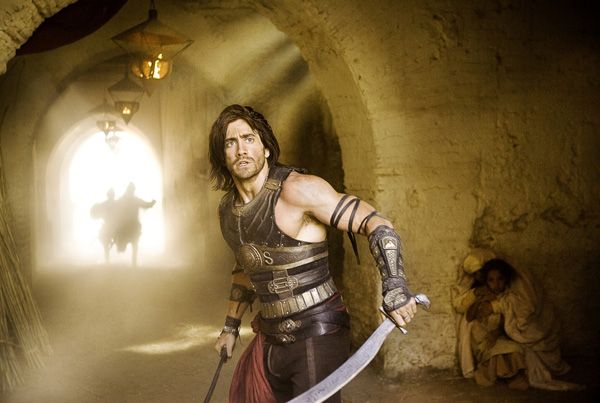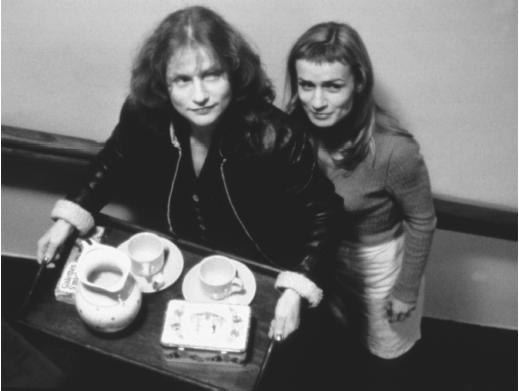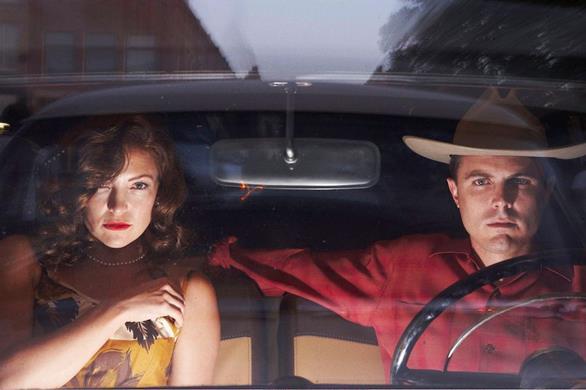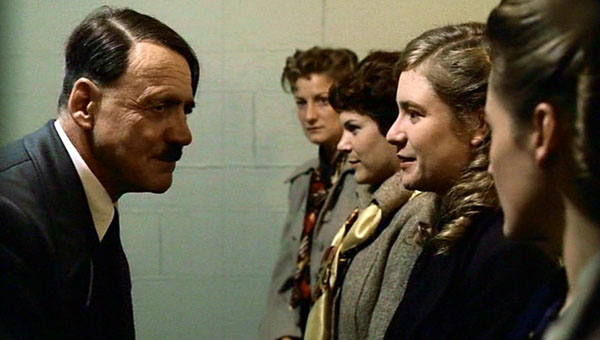DIR: Quentin Tarantino
WHY IS IT ON THE LIST?
By and large my enthusiasm for Quentin Tarantino’s films is something that I’ve grown out of, because they just don’t seem as fresh and as different as they did when I was 15. That said, Jackie Brown is the one that bucks the trend. I didn’t love it the first time I saw it (on its 1998 release, just before I turned 17), and that, I think, is because it’s a film that feels pitched more to an adult audience. As I’ve seen it again over the years I’ve always come away more impressed after each viewing, it’s a film that has gained strength and richness over time.
One of the main reasons I think Jackie Brown is so successful is that it is adapted from Elmore Leonard’s book Rum Punch. Tarantino’s punchy, profane dialogue was, when his films first came to prominence, quite new and different. So much so that many viewers (myself included) didn’t really see how much alike all his characters sounded. In a Quentin Tarantino screenplay everyone talks like Quentin Tarantino, but not in Jackie Brown. With Leonard’s book and characters as a blueprint he manages to give each personality their own defined voice, finding a melancholy in Jackie Brown (Pam Grier) and bail bondsman Max Cherry (Robert Forster) that I doubt he’d have achieved without that roadmap.
Tarantino’s biggest contribution, character wise, is to make Leonard’s Jackie Burke (a white character) Jackie Brown, played by a brilliant Pam Grier, who is so natural as the 44 year stewardess, forced to help the Police bring down gun runner Ordell Robbie (Samuel L Jackson), that you can’t imagine anyone else in the part. Her presence also allows Tarantino to pay tribute to some of his favourite Blaxploitation movies, for instance by casting Sid Haig as a judge and with the use of Across 110th Street over the opening credits.
The performances are all brilliant, from Grier’s tough but vulnerable Jackie right down to Chris Tucker’s highly amusing cameo as a low level hood. There are a few standouts though. Samuel L Jackson simply has a cadence that fits Tarantino’s dialogue, and as Ordell Robbie he is both hugely charismatic and hugely scary, with an almost disconcerting ability to turn on a dime from lighthearted to threatening. Another great turn comes from Robert Forster who, along with Grier, fills Tarantino’s traditional career resurrection slot (previous beneficiaries Harvey Kietel in Reservoir Dogs, John Travolta in Pulp Fiction). His playing of Max’s infatuation with Jackie is just wonderful; as warm, sweet and mature as the screenplay. Robert De Niro, as slobby criminal Louis Gara, gives perhaps his last great performance (I have a pet theory that he died after this film, and was replaced by a talentless doppelganger… well, you explain the last 13 years then!)
Right down to the cameos the film is perfectly cast and acted. Michael Keaton is so good as ATF agent Ray Nicolet that when the same character was called for in Steven Soderbergh’s Out of Sight he had Keaton reprise the role, but for me the film’s little masterpiece is Bridget Fonda’s laconic performance as dumb, stoned, aging surfer girl Melanie. Fonda, always an underrated actress, manages to be utterly charming just by lying on a sofa smoking a bong for most of the movie - okay, the bikini helps - and when she exits the film it’s both shocking and sad.
This is a mature work from Tarantino; rich not just in dialogue but in character, and making much better use of the non-linear storytelling he’s so fond of than he’d managed before. That’s because here it’s not just a gimmick, he tells the story out of sequence only when doing so will enhance it. The best example of this is the outstanding mall sequence, which involves all the characters in a complex scam of Jackie’s design. We see the whole sequence three times, from three different character’s perspectives, each time getting a different read on how things play out. It’s a masterful sequence, perhaps the best Tarantino has ever put to film, and indicative of a director in full confident command of his film.
Tarantino was always good at crafting little bits; good sequences, cool dialogue, but in Jackie Brown he draws it all together into a complex patchwork which is as interesting as a whole as it is as a series of pieces. That’s why it’s his best film.

STANDOUT SCENES
Chicks who love guns
We are introduced to Ordell and his business, with some immortal Tarantino / Jackson dialogue.
Across 110th Street
Okay, almost nothing happens in this credit sequence, but it’s very, very cool, and capably introduces Grier without her speaking a word.
The Mall
A hugely complex sequence of events, told from many different perspectives, in a thrilling twenty minutes of cinema.
MEMORABLE LINES
Louis: Who's Beaumont?
Ordell Robbie: An employee I had to let go.
Louis: What'd he do?
Ordell Robbie: He put himself in a position where he was going to have to do ten years in prison, that's what he did. And if you know Beaumont, you know ain't no god damn way he can do ten years. And if you know that, then you know Beaumont's gonna do anything Beaumont can to keep from doing them ten years, including telling the federal government any and every motherfucking thing about my black ass. Now that my friend is a clear cut case of him or me. And you best believe it ain't gonna be me.
[Louis and Melanie are looking at a picture]
Melanie: That's Japan.
Louis: Uh, looks like... I can... It shows...
Melanie: Wanna fuck?
Louis: Yeah.
[three minutes later]
Melanie: That was fun.
Louis: Yeah, that hit the spot.
Melanie: Now, we can catch up.
Ordell Robbie: AK-47. The very best there is. When you absolutely, positively got to kill every motherfucker in the room, accept no substitutes.
To buy the the movie, and help out 24FPS at the same time, please use the links below. Thanks!
UK: 2 Disc DVD
USA: 2 Disc DVD



























